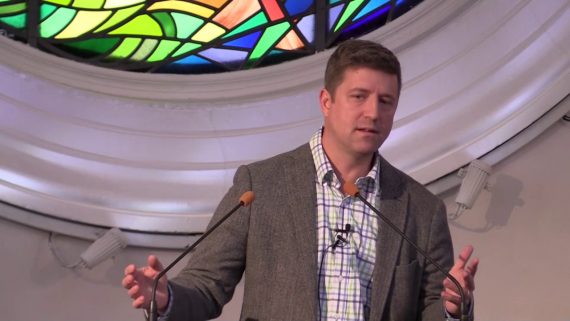
I have been teaching a series on the doctrine of divine election in Scripture, and so am pleased to welcome Shawn Lazar onto the show to discuss his book, (#AmazonAdLink) Chosen to Serve.
(#AmazonAdLink)  In his book, Shawn shows what the Bible teaches about election, and discusses several key passages which are used to defend various views of divine election. Shawn shows us how to understand these passages in light of the rest of biblical revelation about this tricky doctrine.
In his book, Shawn shows what the Bible teaches about election, and discusses several key passages which are used to defend various views of divine election. Shawn shows us how to understand these passages in light of the rest of biblical revelation about this tricky doctrine.
When you properly understand divine election, you will no longer find yourselves in angry and heated debates about who God chose for heaven from eternity past … nor will you be anxious about whether or not you yourself are chosen by God.
Instead, you will discover the beautiful biblical truth that election is to service, not to eternal life.
By listening to the podcast episode, you will also learn how to get 50% off Shawn’s book, Chosen to Serve. Or you can (#AmazonAdLink) pay full price on Amazon … if that is what you really want.
Here are other links we mentioned in the podcast interview:
- Free Magazine signup at FaithAlone.org
- Chosen to Serve at FaithAlone.org
- Shawn Lazar on Facebook
- The discussion on Cornelius by Ken Yates is a YouTube video found here:





 But what does this have to do with voting? Voting is not an oath of fealty. Voting is not a stamp of approval on everything the person you vote for has said and done, or will say and do. Voting is not a promise to obey, support, and defend everything this person says or does.
But what does this have to do with voting? Voting is not an oath of fealty. Voting is not a stamp of approval on everything the person you vote for has said and done, or will say and do. Voting is not a promise to obey, support, and defend everything this person says or does. Voting is a way to make your voice heard. And if you don’t want to make your voice heard through voting, then you should also not make your voice heard after the voting is over. When you vote, according to the values and principles of your only sovereign, Jesus Christ, this is what gives you the subsequent right to raise your voice in prophetic warning about the poor decisions that the leaders are making, whether or not you voted for them.
Voting is a way to make your voice heard. And if you don’t want to make your voice heard through voting, then you should also not make your voice heard after the voting is over. When you vote, according to the values and principles of your only sovereign, Jesus Christ, this is what gives you the subsequent right to raise your voice in prophetic warning about the poor decisions that the leaders are making, whether or not you voted for them.
 If you really listen to what all candidates say, this is exactly the sorts of things they all promise.
If you really listen to what all candidates say, this is exactly the sorts of things they all promise.






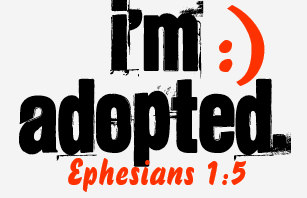 One famous example is when Julius Caesar adopted Octavian (who became Caesar Augustus) to be his heir, even though Octavian was not Caesar’s son. Caesar had a biological son with Cleopatra named Caesarion, but he was not named as heir.
One famous example is when Julius Caesar adopted Octavian (who became Caesar Augustus) to be his heir, even though Octavian was not Caesar’s son. Caesar had a biological son with Cleopatra named Caesarion, but he was not named as heir.

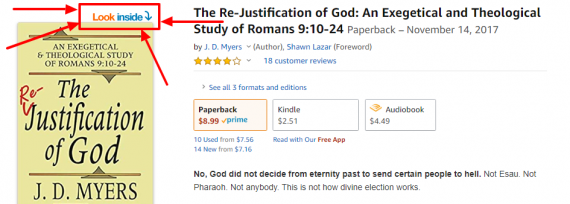
 Instead, Paul’s letter to the Romans is about how the gospel “saves” believers and unbelievers alike (Romans 1:16-17) from wrath. This becomes clearer still when we recall that the word “saves” does not mean “justifies” but “delivers” (see
Instead, Paul’s letter to the Romans is about how the gospel “saves” believers and unbelievers alike (Romans 1:16-17) from wrath. This becomes clearer still when we recall that the word “saves” does not mean “justifies” but “delivers” (see  The first example is Jacob and Esau, and it is important to note that both Jacob and Esau were elected, or chosen, by God. It is often assumed that only Jacob was chosen by God, but Paul clearly indicates that God chose the older brother, Esau, to serve the younger brother, Jacob.
The first example is Jacob and Esau, and it is important to note that both Jacob and Esau were elected, or chosen, by God. It is often assumed that only Jacob was chosen by God, but Paul clearly indicates that God chose the older brother, Esau, to serve the younger brother, Jacob. Instead, God raised up Pharaoh and solidified the proud and stubborn rebellion that was in Pharaoh’s heart so that those who witnessed and heard of what happened in Egypt would know that the God of Israel alone was God. Could not God, in His gracious sovereignty, do such a thing with Pharaoh without affecting whatsoever Pharaoh’s ability to believe in God’s promises and thus become part of God’s redeemed people?
Instead, God raised up Pharaoh and solidified the proud and stubborn rebellion that was in Pharaoh’s heart so that those who witnessed and heard of what happened in Egypt would know that the God of Israel alone was God. Could not God, in His gracious sovereignty, do such a thing with Pharaoh without affecting whatsoever Pharaoh’s ability to believe in God’s promises and thus become part of God’s redeemed people? Read this way, God does not create two classes of people, one to destroy and one to bless. God does not create vessels for dishonor, but instead, endures with patience those who are dishonorable in the hopes that they would see His mercy and become vessels of honor.
Read this way, God does not create two classes of people, one to destroy and one to bless. God does not create vessels for dishonor, but instead, endures with patience those who are dishonorable in the hopes that they would see His mercy and become vessels of honor. Having made this point, Paul goes on to argue in Romans 10 that Israel did not fail, but actually succeeded, and in fact, can continue to be elect by joining the elect people of God in the church. This is why Paul calls the church to proclaim the gospel to the Jews as well.
Having made this point, Paul goes on to argue in Romans 10 that Israel did not fail, but actually succeeded, and in fact, can continue to be elect by joining the elect people of God in the church. This is why Paul calls the church to proclaim the gospel to the Jews as well. In this way, when Paul writes about branches being cut off so others can be grated in which will lead to the cut off branches being grafted back in again, he is not talking about people losing and regaining eternal life, but about losing and re-gaining places of privilege and purpose in God’s plan for this world. God’s plan of redemption started with Israel, shifted to the church (consisting of both Jewish and Gentile believers), so that “of Him and through Him and to Him are all things” (Romans 11:36).
In this way, when Paul writes about branches being cut off so others can be grated in which will lead to the cut off branches being grafted back in again, he is not talking about people losing and regaining eternal life, but about losing and re-gaining places of privilege and purpose in God’s plan for this world. God’s plan of redemption started with Israel, shifted to the church (consisting of both Jewish and Gentile believers), so that “of Him and through Him and to Him are all things” (Romans 11:36).
 There are many related terms as well, such as calling, foreknowledge, ordained, and predestined, but by considering the term election, or to choose, the basic meaning of these others words will become clear.
There are many related terms as well, such as calling, foreknowledge, ordained, and predestined, but by considering the term election, or to choose, the basic meaning of these others words will become clear. He can elect believers or unbelievers.
He can elect believers or unbelievers. So Jesus is not referring to the calling or election of some to eternal life, but is teaching the consistent biblical message that while God desires that all people will serve Him, not all do, and so God chooses to work with those who participate with Him in what He is doing in the world.
So Jesus is not referring to the calling or election of some to eternal life, but is teaching the consistent biblical message that while God desires that all people will serve Him, not all do, and so God chooses to work with those who participate with Him in what He is doing in the world. Third, the gathering of the elect from the four winds does not refer to some sort of future rapture event, but to God gathering Jewish people from all over the world to return to Israel so that His plan and purposes for them can be fulfilled. In the context, Jesus mentions the people of Judea (Matthew 24:16), and references the image of the fig tree which is a symbol for Israel (Matthew 24:32-35).
Third, the gathering of the elect from the four winds does not refer to some sort of future rapture event, but to God gathering Jewish people from all over the world to return to Israel so that His plan and purposes for them can be fulfilled. In the context, Jesus mentions the people of Judea (Matthew 24:16), and references the image of the fig tree which is a symbol for Israel (Matthew 24:32-35). In John 15:16, Jesus provides an extremely clear statement about what it means to be chosen and why certain people are chosen by God, and by Himself.
In John 15:16, Jesus provides an extremely clear statement about what it means to be chosen and why certain people are chosen by God, and by Himself.











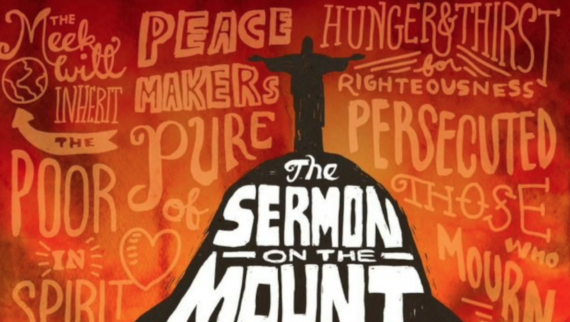
 Jesus is teaching people about the requirements of following Him and being His disciple. Clearly, nobody can ever fulfill or accomplish all these requirements, yet there is something in here for everyone, and nobody will ever get bored in trying to follow Jesus.
Jesus is teaching people about the requirements of following Him and being His disciple. Clearly, nobody can ever fulfill or accomplish all these requirements, yet there is something in here for everyone, and nobody will ever get bored in trying to follow Jesus.
 (Note: I include Greg Boyd’s “Divine Withdrawal” view in this category. He argues that God finally got fed up with the evil of mankind, and so He withdrew His divine hand of protection that was holding back the destructive floodwaters, thereby allowing them to destroy humanity. In this view, God didn’t do the destroying Himself; He simply stepped back to let the destroyer have its way with humanity. In a personal conversation with Greg Boyd, I related to him the following video clip, and he agreed that for the most part, it represents his position.)
(Note: I include Greg Boyd’s “Divine Withdrawal” view in this category. He argues that God finally got fed up with the evil of mankind, and so He withdrew His divine hand of protection that was holding back the destructive floodwaters, thereby allowing them to destroy humanity. In this view, God didn’t do the destroying Himself; He simply stepped back to let the destroyer have its way with humanity. In a personal conversation with Greg Boyd, I related to him the following video clip, and he agreed that for the most part, it represents his position.) Is this just a divine example of the bad parenting advice “Do as I say; not as I do?”
Is this just a divine example of the bad parenting advice “Do as I say; not as I do?” And when we look to Jesus, and specifically the most violent aspect of the life of Jesus, His crucifixion, and we carefully see what is being done to Jesus on the cross, we discover something surprising.
And when we look to Jesus, and specifically the most violent aspect of the life of Jesus, His crucifixion, and we carefully see what is being done to Jesus on the cross, we discover something surprising.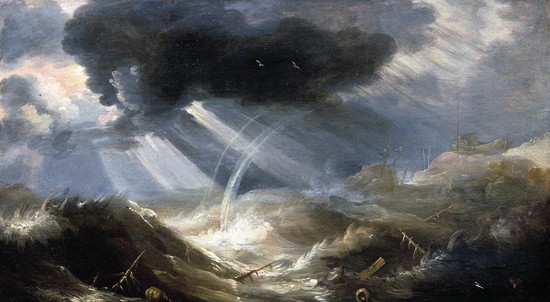
 Looking at our face in the mirror of Genesis 6–8, we must ward ourselves against the common human practice of condemning others when bad things happen to them. We must stop saying, “Well, he lost his job and got cancer, so God must be punishing him for some secret sin.” (Remember Job?) Instead, when bad things happen to people, we must, like Jesus, enter into their hellish pain and sorrow, and help them or love them in in any way we can.
Looking at our face in the mirror of Genesis 6–8, we must ward ourselves against the common human practice of condemning others when bad things happen to them. We must stop saying, “Well, he lost his job and got cancer, so God must be punishing him for some secret sin.” (Remember Job?) Instead, when bad things happen to people, we must, like Jesus, enter into their hellish pain and sorrow, and help them or love them in in any way we can.
 Since no person can ever fully learn everything Jesus has to teach, and no person can ever fully resemble and practice everything that Jesus leads us to do, all who are disciples of Jesus will spend their entire lives learning from Jesus and following in His footsteps.
Since no person can ever fully learn everything Jesus has to teach, and no person can ever fully resemble and practice everything that Jesus leads us to do, all who are disciples of Jesus will spend their entire lives learning from Jesus and following in His footsteps.
